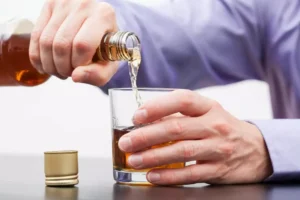
It dilates blood vessels, leading to increased redness and irritation. Take charge drug addiction treatment of your skin by evaluating your drinking habits. Your skin deserves the best care, and being mindful of what you consume can lead to a radiant complexion. For example, someone who drinks heavily may notice their skin becoming redder and itchier after a night out.
What are the effects of alcohol on the skin?
Yes, alcohol can accelerate the aging process by damaging collagen and elastin fibers in the skin, which can lead to wrinkles, sagging, and other signs of aging. It can also cause oxidative stress, which can further damage the skin’s cells. Eczema and dermatitis are two other skin conditions that can be exacerbated by alcohol consumption. Both conditions cause inflammation and irritation of the skin, and alcohol can further irritate the skin and make symptoms worse. Excessive and frequent alcohol consumption can result in various skin-related issues, including redness, diminished skin elasticity, and dryness. Some effects of alcoholic face, like spider veins, can’t be reversed without cosmetic procedures like laser therapy.
Summary of Effects
Many people notice that their skin looks tired after a night of drinking. Over time, this can develop =https://ecosoberhouse.com/ into more serious skin health concerns, including chronic skin conditions like eczema or psoriasis. With holiday celebrations right around the corner, you may be looking forward to enjoying a few more cocktails than usual at holiday parties and gatherings with friends and family.
- Alcohol may contribute to both new cases of eczema and flare-ups for people who already have the condition.
- At Renaissance Recovery our goal is to provide evidence-based treatment to as many individuals as possible.
- Alcohol alternatives like Surely non-alcoholic wine are a great way to give your skin a break while sipping on something delicious.
- Besides, non-alcoholic drink options have never been better – I stock up on Saicho and Fortnum & Mason’s Sparkling Tea every December – driven by an increasingly sober-curious society.
- Another skin change linked to alcoholic liver disease is the development of spider angiomas.
Influence of Alcohol on Psoriasis
It breaks up your normal sleep rhythms and can make you restless throughout the night. Cold compresses should help, but the best answer is a good night’s sleep. Alcohol can give rise to allergic or allergy-like symptoms. Along with urticaria (see above), patients may develop low blood pressure, diarrhoea, shortness of breath, and low heart rate (anaphylaxis).
It can cause various skin conditions, premature aging and wrinkles, acne, and dehydration. However, by understanding the science behind alcohol’s effect on the skin and taking steps to protect and care for your skin while drinking alcohol, you can minimize the negative effects. If you are struggling with alcohol addiction, seeking professional help is essential for both your overall health and your skin health. By taking care of your skin and maintaining a healthy lifestyle in recovery, you can how alcohol affects your skin ensure that your skin remains healthy and vibrant for years to come.
sleep habits for the elderly to incorporate this new year
- These steps can help affected persons see a visible change.
- Alcohol has both short-term and long-term effects on the skin.
- With Dr Ana’s help, we’ve ranked different types of alcohol from worst to best for your skin below.
- “Alcohol fuels inflammation, releasing histamines that flare up already existing skin conditions,” adds Dr Davis.
- With holiday celebrations right around the corner, you may be looking forward to enjoying a few more cocktails than usual at holiday parties and gatherings with friends and family.
- Get the latest updates on news, specials and skin care information.
Alcohol disrupts communication between these organisms and the intestinal immune system. Whether alcohol triggers symptoms may depend on various factors, such as the type of eczema a person has, how much they drink, and whether they have any other health conditions. Applying alcohol to the skin can also cause irritation and dryness. Alcohol is a vasodilator, which causes blood vessels to expand, which can lead to a temporary flushing of the skin (especially on your face). Drinking excessively can cause over-dilation of these veins, and exacerbate conditions like rosacea, a skin disorder that is characterised by persistent redness. Wrinkles Alcohol like whisky, vodka and beer is diuretic, meaning it increases urination, thereby making you dehydrated.